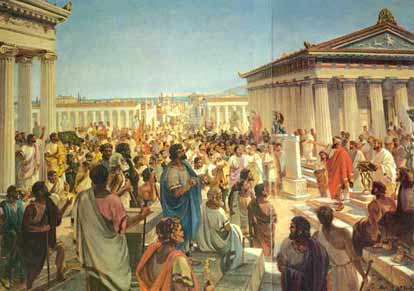
Decree honoring Diophantos
Inscription honoring the emperor Zeno
Civic Oath of Chersonesos
Decree honoring Syriskos the historian
Base of statue for Agasikles
Proxeny decree for an ambassador from Mithridates Eupator
Decree honoring ambassadors from Herakleia
Base of statue for Aristonos
Treaty of alliance with the king Pharnakes I
List of those who won sport competitions
Inscription about the tax on prostitution
Fragment of a decree about the fortress of Napites
Inscription about construction of a city gate
Dedication to the goddess Nemesis
Inscription regarding the liberation of Kalos Limen
Decree honoring the emperor Marcus Aurelius
Decree honoring Gaius Julius Satyrus
Proxeny for a citizen of Sinope
Epitaph in verse on stele for Xanthos
Inscription on the stele set up by doctor
Epitaph in verse on stele for Oinanthe
Short epitaphs
Civic Oath of Chersonesos
Originally published by V. V. Latyshev, commentaries by E. I. Solomonik English translation by Thomas F. Lytle

This white marble slab is decorated with cornice and pediment at the top. It was uncovered in the city main square, near the modern St. Volodymyr's church, upper and lower fragments in 1890 and 1891 respectively, though another small fragment in 1899. The Oath was published and commented many times, both in Russian and foreign scholarship. The most part o scholars attribute it to the early 3rd century B. C.

This picture shows the scene of taking the Oath in the ancient Chersonesos.
Painting by R. Voskresenskiy
I swear by Zeus, Gaia, Helios, Parthenos, the Olympian gods and goddesses, and all the heroes who protect the polis, chora, and forts of the people of Chersonesos:
I shall act in concord (with my fellow citizens) on behalf of the protection and freedom of the polis and its citizens.
I shall not betray to anyone whomsoever, whether Greek or barbarian, Chersonesos, Kerkinitis, Kalos Limen, the other forts, and the rest of the chora, which the people of Chersonesos inhabit or inhabited. But I shall carefully guard all of these for the demos (the people) of Chersonesos.
I shall not put down democracy. I shall neither rely upon nor help conceal either traitor or subverter, but I shall reveal them to the damiourgoi (magistrates) in the city.
I shall oppose anyone who plots against, betrays or revolts from Chersonesos, Kerkinitis, Kalos Limen, the forts, and the chora of the people of Chersonesos.
I shall hold the office of damiourgos; I shall be, to the best of my ability and with the greatest fairness, a councilor to the city and its citizens.
I shall guard carefully the ΣАΣТНРА for the demos; and I shall not reveal to either a Hellene or barbarian any secret which is likely to harm the city.
I shall neither offer nor accept a gift to harm the polis and its citizens.
I shall not contrive with evil intention against any citizen who has not revolted (from Chersonesos); I shall neither rely upon one who plots (against the city) nor conceal anything from anyone, but I shall lay an impeachment and determine the matter by vote according to the laws.
I shall pledge my oath to a conspiracy against neither the commonwealth of the people of Chersonesos nor any citizen who has not been shown to be an enemy of the demos.
If I conspire with anyone and am bound by oath or solemn curse, may it be better for me and my possessions if I am reconciled (to the state), but the opposite if I stand fast (to the conspiracy).
I shall report to the damiourgoi any conspiracy which I perceive to exist already or to be forming.
Neither shall I sell grain suitable for exportation which comes from the plain, nor export grain from the plain to another place, except to Chersonesos.
Zeus, Gaia, Helios, Parthenos, and the Olympian gods, as long as I abide by these covenants, may it be better for me, my family, and my possessions. But if I do not abide, may it be ill for me, my family, and my possessions; may neither the earth nor the sea bear their fruit for me; may the women not be happy in children ...
Commentary
The Oath supplies evidences regarding Chersonesos regime, where the Council and the People's Assembly were the principle bodies of government, as well as where the frontiers of Chersonesos were located: at that time, this city-state included Chersonesos itself and also Kerkinitis (located at the place of present-day Yevpatoriya), Kalos Limen (modern town of Chernomorskoye), several forts and lands in the west coast of the Crimea, and the close farming area (chora) in the Gerakleyskiy (Russian for 'Herakleian') peninsula. The Oath, which really was something like a vow, mentions not only usual triad of deities (Zeus, Gaia, and Helios), but also the goddess Parthenos, the great protector of the city and the state. The order to bring the grain from the plain to Chersonesos only was extremely important for the economy of Chersonesos.
The Oath was most probably introduced after an acute political struggle and restoration of democracy that had been temporarily lost. That was the reason why did the citizens swear to protect their democratic system from any infringement, to struggle against treasons, to serve the people faithfully, and to defend the frontiers from both Hellenes and barbarians.
The meaning of the term ΣАΣТНРА ("saster") remains unclear.
Damiourgos – (or demiurge, as we now pronounce it) was an official of a high rank. Its position within the structure of the government of Chersonesos is not quite clear, the same as its functions, though it is evident that it was a political type office.